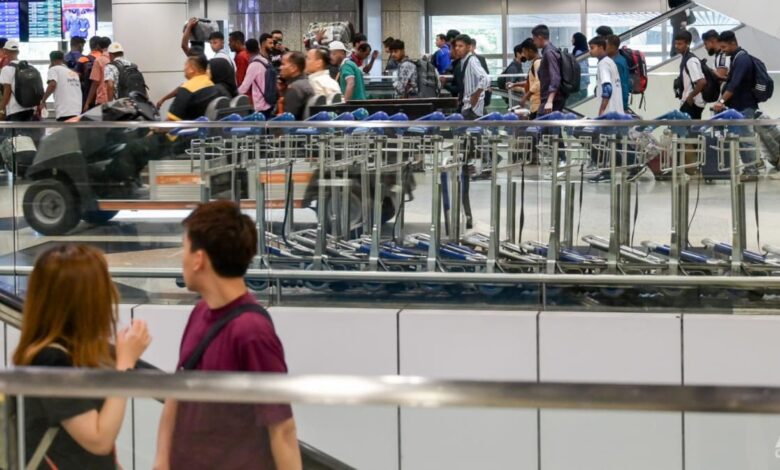Bangladesh appeals for Malaysia to allow 17,000 of its workers to enter country after missed deadline

Bangladesh’s minister of state for expatriates’ welfare and overseas employment Shofiqur Rahman Choudhury has called for a special one-off period to allow these workers to enter Malaysia, news outlet Free Malaysia Today (FMT) reported.
The workers have approved visas from Malaysia’s immigration department as well as valid cards from Bangladesh’s Bureau of Manpower, Employment and Training, which were issued after their Malaysian visas were approved, he said.
These workers’ “future depends on getting jobs in Kuala Lumpur”, he added.
Mr Shofiqur will meet on Wednesday (Jun 5) with the Malaysian High Commissioner to Bangladesh, Mdm Haznah Md Hashim, to discuss the matter, according to news reports.
The minister added that Bangladeshi authorities are also investigating claims that the prospective workers have had to pay more for their flights and been charged high recruitment fees by unscrupulous agents.
Malaysia’s influx of migrant workers last week came after a deadline for employers to bring them in was brought forward from end-September to May 31 for national and border security reasons.
Last week, Malaysia’s immigration department said that since May 22, 2,500 migrant workers have arrived each day, with the figure increasing to between 4,000 and 4,500 on May 27.
The usual number of daily arrivals is 500 to 1,000, the department said.
Employers from six sectors in Malaysia are allowed to import labour from 15 countries – Indonesia, Bangladesh, Thailand, Cambodia, Nepal, Myanmar, Laos, Vietnam, Philippines, Pakistan, Sri Lanka, Turkmenistan, Uzbekistan, Kazakhstan and India.
But those from Indonesia, Bangladesh, and Nepal make up over three in four migrants in Malaysia.
According to official statistics, documented migrant workers make up about 15 per cent of Malaysia’s workforce and many do so-called 3D – dirty, dangerous and demeaning – jobs that are usually shunned by locals.
Combined with undocumented workers, their numbers could be around 5.5 million based on unofficial estimates.

